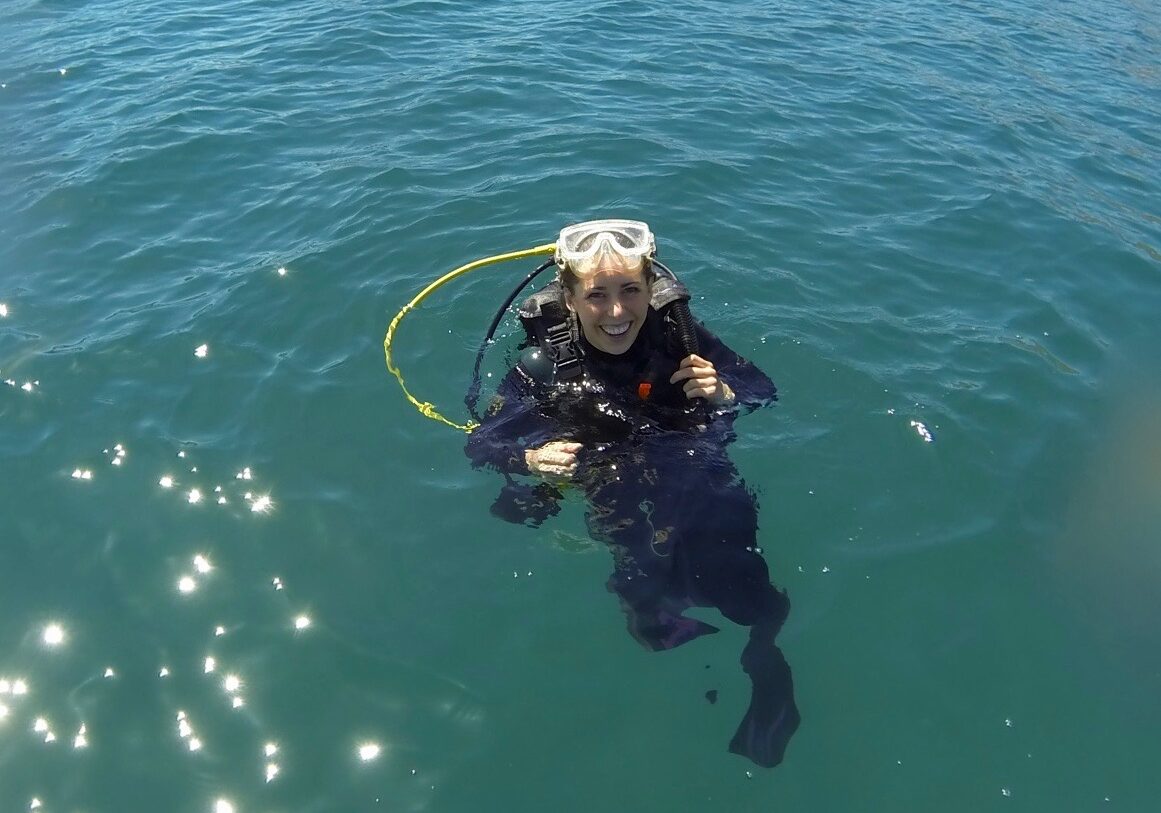
Pellowe explores chocolate clams, earns doctorate at UMaine
For six years, Kara Pellowe studied the chocolate clam fishery and the coupling of socio-ecological systems in Loreto, Mexico. This summer, she earned a Ph.D. in ecology and environmental sciences at the University of Maine.
Chocolate clams (Megapitaria squalida) are an economically and culturally important species in Loreto named for the shiny brown color of their shells. They are among the top ten fisheries in the region by both biomass and value.
Pellowe has been investigating how the features of the marine ecosystem, and of related human communities, help or hinder coastal communities in adapting to future change.
“My hope is that my work helps to support local efforts to sustain marine species and their many benefits, as well as to empower resource users and managers to work together to build community resilience,” says Pellowe.
Pellowe’s interests in marine ecosystems have been part of her life for a long time; she has been passionate about marine conservation since childhood and has always felt drawn to contribute to sustainability through science.
In 2016, she began her doctoral program at the University of Maine after completing dual masters degrees in biology and sociology at Brown University and an undergraduate degree in environmental sciences from Cornell University.
Pellowe, a resident of Wiscasset, originally hails from Colorado. She came to UMaine to pursue training in sustainability science, because of the institution’s strengths in both the environmental and human dimensions of marine science.
She conducts her research at the Darling Marine Center in Walpole with Dr. Heather Leslie, director of the center and associate professor at UMaine.
“Kara has done an amazing job bringing together information on both the human and environmental dimensions of this important coastal fishery in northwest Mexico,” Leslie says. “She’s become fluent in the languages of both the social and natural sciences, and through that interdisciplinary training, she’s become a real role model for our students who are seeking to do conservation-relevant research.”
This month, Pellowe is starting a postdoctoral research position at UMaine, in collaboration with Leslie and colleagues at the Stockholm Resilience Center in Stockholm, Sweden. She will be exploring links between how the individual fishers’ strategies for dealing with environmental and economic changes contribute to ecosystem and community resilience.
“I’m glad that Kara will continue her affiliation with the Darling Marine Center, and am excited to see what she does next,” Leslie says.
Pellowe also is working locally on this theme; the past summer, she led a team of researchers from the DMC who gathered information about the diversity and abundance of clams and other shellfish species in the intertidal flats managed by the Towns of Damariscotta and Newcastle.
Dr. Pellowe will be presenting results of this study at the Damariscotta Selectmen’s meeting on Wednesday, Sept. 18 at 5:30 p.m. at the Damariscotta Town Office.
The U.S. National Science Foundation, University of Maine, Brown University, and the Society for Conservation Biology Marine Section have funded her research.
Founded in 1965, the Darling Marine Center’s mission is to connect people to the ocean. The center’s researchers, staff and students work alongside fishermen, aquaculture entrepreneurs, marine industry professionals and other members of the community in Maine and around the world. More information is available at dmc.umaine.edu
